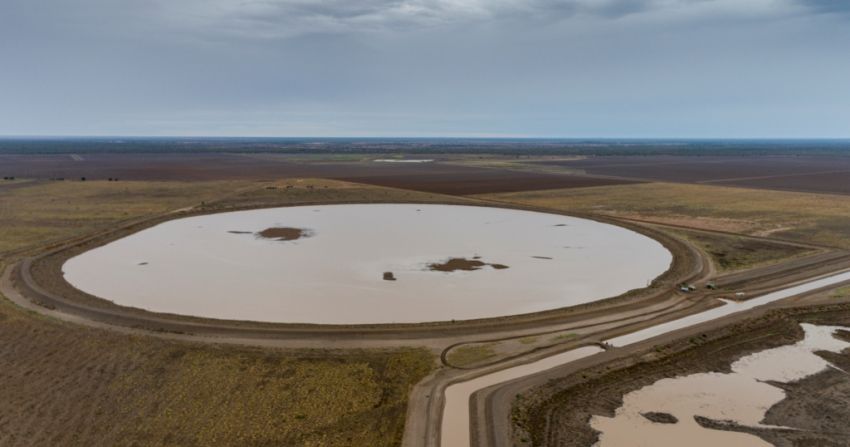
An unprecedented expansion of the privatisation of water has been averted with the defeat of the New South Wales government’s third attempt to pass its floodplain harvesting regulations.
Healthy Rivers Dubbo campaigner Mel Gray said the government had been trying to legalise irrigators diverting billions of litres of floodwater into huge private dams in the northern Murray-Darling Basin “without regard to the viability of downstream communities and river health”.
Introduced during the recess, the floodplain harvesting regulations were voted down by the Legislative Council on February 24.
Independent MP Justin Field said the regulations would have handed out billions of litres of water licences without the conditions needed to guarantee communities and the environment downstream would get their share.
Labor, Greens, Justin Field and the Animal Justice Party voted to disallow the regulations, 18 votes to 15. One Nation and the Christian Democratic Party voted with the Nationals and Liberals for the private flood water licensing and the Shooters, Fishers and Farmers Party abstained.
“It should now be clear to the government that they do not have a social licence to gift $1 billion worth of water licences to their corporate irrigator mates,” Greens spokesperson Cate Faehrmann said.
Floodplain harvesting needs to be licenced, but must be kept within legal limits to meet downstream and cultural flow targets, and environmental impact assessments should be undertaken before any licences are issued.
Faehrmann said it must “bring floodplain harvesting to within the legal limits in the Murray-Darling basin plan”, adding that those limits are 64 gigalitres, not 346. “We will never support the expansion of floodplain harvesting beyond the legal limit of 64 GL because it is ultimately unsustainable for the river system itself.”
Faehrmann warned that licences under the proposed regulations “would leave a future government exposed to potentially billions of dollars in compensation when it inevitably needs to bring floodplain harvesting down to sustainable levels”.
“This is a huge win, but the fight isn’t over yet though,” she said in a social media statement.
Inland Rivers Network spokesperson Brian Stevens said downstream communities are being “sacrificed by the NSW government in favour of their wealthy irrigator supporters who have had free unlicensed access to floodplain flows for over 30 years”.
“Regulation of floodplain water extraction is long overdue,” he said, adding that the government only listens to the large irrigators. “Without a comprehensive assessment of downstream impacts, this regulatory process is locking in the ongoing degradation of the NSW Northern Basin rivers and communities.”
Stevens called for “a comprehensive assessment of the impacts of this water capture”.
“Floodplain water flows should provide water for the Barwon-Darling/Baaka River, for wetland systems, for Aboriginal cultural values and for groundwater recharge.”
Field revealed that even while the controversial regulations were being reviewed, new water minister Kevin Anderson allowed some licences in the Gwydir Valley and the Border Rivers.
Field said on Facebook that the trading of water licences should not be allowed. “There is a rule that allows 500% of the allocation to be taken in any one year; this would mean that more water than ever before can be taken from a floodplain during a particular flood event.” He asked how taking this water complies with the law, “which is supposed to prioritise water for communities and the environment ahead of extraction for irrigation and agriculture”.
“There is an opportunity now,” Field said, “while the rivers are full and the dams are full, to step back and have another look at this — to work with communities right across the basin, irrigators in the south, floodplain graziers, traditional owners, communities, environmental scientists.
“We can design a system which both measures and licences this take, keeps it within genuinely sustainable limits and ensures that the management rules protect downstream communities and the environment into the future.”
Faehrmann said the Select Committee into Floodplain Harvesting made 25 recommendations to make it equitable and environmentally sustainable.